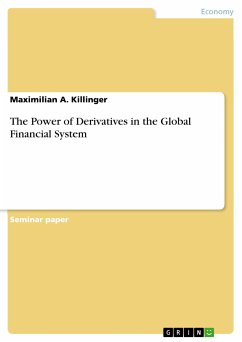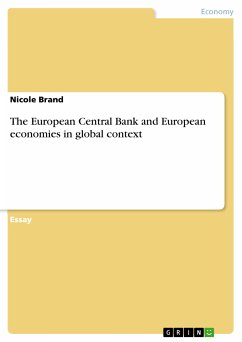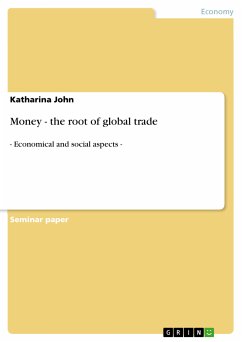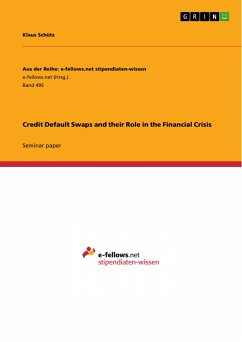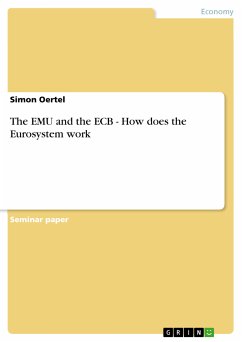Seminar paper from the year 2009 in the subject Economics - Monetary theory and policy, grade: A, City University London, language: English, abstract: This work is to discuss the role and power of derivatives in the global financial markets and their ability to reduce, diversify and enhance risks associated with international capital flows. During the last two decades derivatives, as fiscal instruments, experienced enormous growth and gained increasingly of importance. This is mainly due to their ability to allow the spreading of risks in cross border capital movements, making such investments more appealing and the diversification of portfolios more likely. Yet, derivative markets are controversial because they are not well known outside a small group of specialists. Most people look at them with suspicion and focus on their role as highly effective instruments for speculation. Given the leverage they provide fortunes can be made or lost in the wink of an eye. Although derivatives do not create anything it will be shown in the course of this study that the importance of derivatives lies in the fact that they can be used to reduce, diversify and control uncertainty and risks associated with various corporate activities, thus creating substantial benefits as well as complexities. Section one is going to define the most common derivative products before addressing their general purpose followed by exemplifying two principal risks aligned with the use of derivatives, namely credit- and market risk. Subsequently this works is going to discuss the positive as well as the negative effects derivatives may have on banks and investors. Sections five, six and seven will then illuminate systematic predicaments, address risks and eventually conclude after having considered the entanglement and market share of derivatives. Warren Buffett, Forbes-listed as the richest person in the world, has called credit derivatives financial weapons of mass destruction, carrying dangers that, while now latent, are potentially lethal. Nominally they are insurances against defaults, but they encourage greater gambles and credit expansion, which are moral hazards whereas Alan Greenspan, on the other hand, observed that derivatives have come to play an exceptionally important role in our financial system and in our economy. These instruments allow users to unbundle risks and allocate them to the investors most willing and able to use them. It is this study’s object to illuminate the complexity of derivatives and exemplify both, their advantageous and unfavourable but yet undeniably powerful characteristics.

